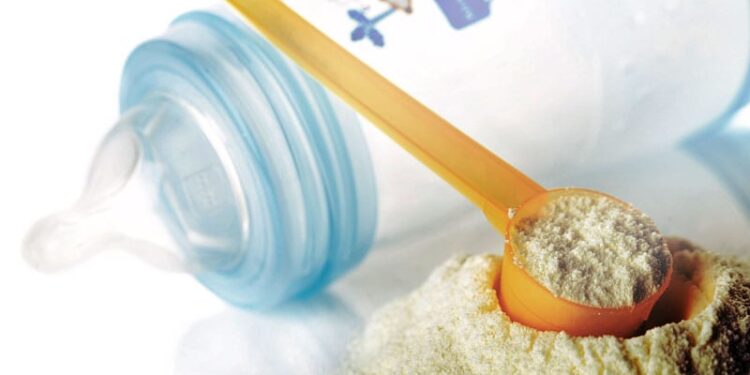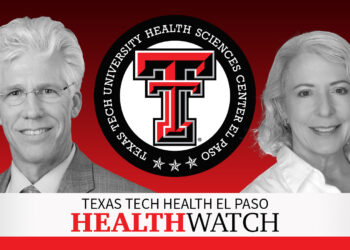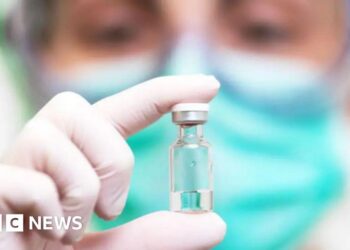At the recent Congress of the French Society of Pediatrics, held in Paris, France, Alexis Mosca, MD, a paediatric gastroenterologist at Robert Debré Hospital, Paris, France, and member of the French Society of Pediatrics’ gastroenterology group, said that the guidance helps clarify when probiotics should be used. He also previewed the upcoming European Society for Paediatric Gastroenterology, Hepatology and Nutrition (ESPGHAN) recommendations on probiotics in infant formula.
According to the ESPGHAN, only a few probiotic strains are effective in children, particularly in treating acute diarrhoea and infant colic.
Probiotic Guidance
Gut flora modulators, such as pre-, pro-, syn-, and postbiotics, are commonly used in paediatrics, but selecting the right one can be challenging. Experts from the ESPGHAN have reviewed the evidence on specific probiotic strains for various gastrointestinal disorders. Only strains supported by at least two randomised controlled trials for the same condition were recommended.
Probiotics are advised for selected digestive conditions in children, including acute gastroenteritis, antibiotic-associated diarrhoea, nosocomial diarrhoea, and necrotising enterocolitis in preterm infants.
ESPGHAN has identified a limited number of strains with proven benefits. These include Lactobacillus rhamnosus GG [ATCC 53103], Saccharomyces boulardii [CNCM I-745], Lactobacillus reuteri [DSM 17938], and a combination of L rhamnosus [19070-2] with L reuteri [DSM 12246].
To prevent antibiotic-associated diarrhoea in both outpatient and hospitalised children, ESPGHAN recommends S boulardii [CNCM I-745] and L rhamnosus GG [ATCC 53103], ideally started alongside antibiotic therapy. For nosocomial diarrhoea, L rhamnosus GG [ATCC 53103] is also advised.
In neonates at risk of necrotising enterocolitis, positive recommendations include L rhamnosus GG [ATCC 53103] and a combination of three strains of Bifidobacterium infantis [BB-02], Bifidobacterium lactis [BB-12], and Streptococcus thermophilus [TH-4]. For Helicobacter pylori infection, S boulardii [CNCM I-745] has been suggested, although the effect is modest and evidence is limited.
For functional gastrointestinal disorders, L reuteri [DSM 17938] and B lactis [BB-12] are recommended in breastfed infants with colic, although supporting data remain limited. In cases of functional abdominal pain disorders, including irritable bowel syndrome, ESPGHAN advises L reuteri [DSM 17938] and L rhamnosus GG [ATCC 53103].
However, probiotics are not recommended for inflammatory bowel disease, constipation, celiac disease, or small intestinal bacterial overgrowth.
The French-speaking Pediatric Hepatology-Gastroenterology and Nutrition Group has published a fact sheet on the “Role of probiotics in the management of digestive disorders in children,” summarising ESPGHAN’s recommendations and specifying the dosages to follow.
Experts caution that prescribing probiotics remains complex. Many commercial products fail to list essential details, such as strain designation, dosage, or potential contaminants. Clinicians are urged to the exact strain or product not just write “a probiotic.”
Although France permits the term “probiotic” in food supplements (per Directorate General for Competition Policy, Consumer Affairs and Fraud Control guidance, December 2022), product quality remains a major concern. An analysis of 16 probiotic products marketed for infants revealed that only one matched the composition listed on its label. Some products lacked the advertised strains, some showed signs of contamination, and there were notable inconsistencies between batches. Similar concerns were raised in another study involving probiotics administered to premature infants.
A global study found major differences between what probiotic product labels claimed and what they contained. Out of the 30 products tested, only 57% correctly listed the species inside. The remaining 43% were not accurate: Six had more species than declared, three were missing one or more listed species, and four contained species that were not mentioned on the label.
Probiotics in Infant Formula
Mosca and colleagues examined whether biotics should be routinely added to infant formula in the Journal of Pediatric Gastroenterology and Nutrition.
“Unless the text changes before publication which is unlikely,” Mosca said, “We found no clear evidence to support or oppose the routine use of the probiotic strains studied.” These include B lactis [CNCM I-3446], S thermophilus, and Lactobacillus johnsonii La1. None of the tested doses showed a meaningful clinical benefit.
Certain human milk oligosaccharides, such as 2’-fucosyllactose, 3-fucosyllactose, lacto-N-tetraose, 3’-sialyllactose, and 6’-sialyllactose may soften stools when used at high doses. However, no significant clinical benefits have been demonstrated.
Synbiotic combinations, such as Bifidobacterium breve strain M-16V with a 9:1 blend of short-chain galacto-oligosaccharides and long-chain fructo-oligosaccharides, are generally well tolerated and may influence stool consistency and gut microbiota. However, current evidence does not support a consistent clinical advantage over standard infant formulas.
Prebiotics, such as galacto-oligosaccharides, fructo-oligosaccharides, oligofructose, and enriched inulin, have shown only a modest effect, typically limited to a slight increase in stool frequency or softening. Among these, only the specific galacto-oligosaccharide/fructo-oligosaccharide (9:1) mixture demonstrated a measurable effect on stool consistency.
Disclosure
Mosca reported having no conflicts of interest. He has participated in one-time engagements over the past 5 years with BioGaia, Calmosine, PiLeJe, Biocodex, Lacteol, Fresenius Kabi, MaaT Pharma, Danone, Nestlé, Novalac, Modilac, Mead Johnson, and Nutribio.
This story was translated from Medscape’s French edition.
Source link : https://www.medscape.com/viewarticle/which-probiotics-are-doctors-prescribing-kids-2025a1000kid?src=rss
Author :
Publish date : 2025-08-01 12:11:00
Copyright for syndicated content belongs to the linked Source.











